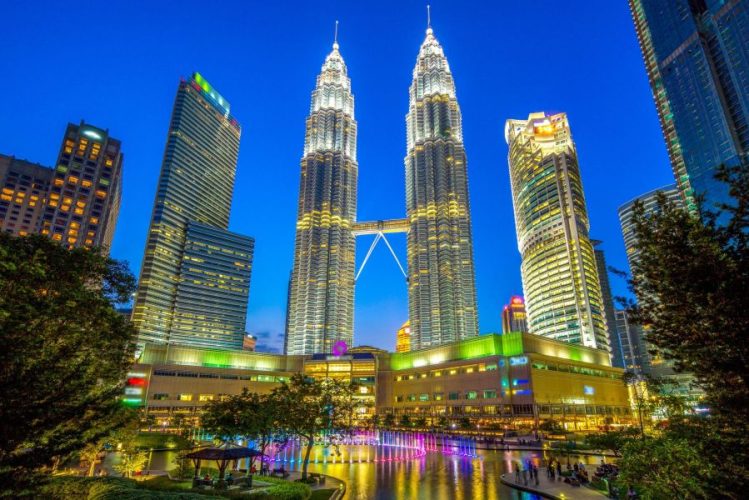Investments In Kuala Lumpur Are Shaping The Economic Future Of Malaysia

Categories :
In terms of global investments, Kuala Lumpur boasts its prominence as an attractive destination, reaffirming Malaysia's position as a hotspot for international investors. The city's ability to continuously magnetise investments and create regional hubs plays a pivotal role in shaping Malaysia's economic trajectory.
Aside from its standing as Malaysia’s capital, Kuala Lumpur (KL) is the nation’s biggest economic contributor and main business centre, home to many corporate offices across finance, insurance, real estate, technology and media.
In 2021, Kuala Lumpur surged ahead, claiming the third-highest approved investments in the country, following Penang and Kedah. A significant driving force behind Kuala Lumpur's increasing investment landscape is the role that government investment promotion agencies, like InvestKL, play in attracting foreign direct investment into Greater Kuala Lumpur.
In 2022, Malaysia recorded 67.5 per cent or RM130.7 billion (USD28.1 billion) of FDI. The country also garnered an aggregate of RM193.7 billion (USD41.7 billion) in sanctioned investments spanning across the services, manufacturing, and primary sectors. This encompasses a spectrum of 2,786 projects and is projected to yield a substantial 98,414 employment prospects within the nation.
According to Muhammad Azmi Zulkifli, the CEO of InvestKL, the city of Kuala Lumpur recorded a remarkable increase in investments, reaching RM37.7 billion in 2021, as opposed to RM17.1 billion in the preceding year.
"More importantly, Kuala Lumpur is a major host of the country's diversified services sector that continues to expand with intensified digitalisation. This accounts for a substantial portion of the high-technology and high-value investments nationwide with a strong focus on innovation," he adds.
The services sector investments in Kuala Lumpur
The services sector played a pivotal role in Malaysia's investment landscape, accounting for RM94.1 billion in approved investments in 2021. Within this sector, foreign investments amounted to RM24.9 billion, representing 26.5% of the total spending. Among the noteworthy sub-sectors, global establishments stood out, with RM19.7 billion in approved investments—an exponential rise compared to RM595.2 million in the previous year.
Other major contributors included real estate (RM28.8 billion), financial services (RM12 billion), utilities (RM9.6 billion), and information communications (RM8.2 billion).
Kuala Lumpur's regional hub Status
Kuala Lumpur's strategic significance as a regional hub for multinational corporations seeking a central operating base is undeniable. The city's connectivity, combined with a competitive ecosystem, lures high-quality projects. With the surge in remote working and automation trends catalysed by digitalisation, Kuala Lumpur's investment landscape has been further invigorated. The rise of IoT, artificial intelligence (AI), and cloud networks has opened new avenues for innovation and investment.
The services and manufacturing sector in Kuala Lumpur
Malaysia's services sector surged, attracting RM113.3 billion in approved investments for the same period, reflecting a 60.9% increase compared to the previous year. This trend underscores the country's prowess in digitalization and innovation, with sub-sectors like information and communications taking the lead.
In the manufacturing sector, Malaysia's competitiveness remains evident, securing RM64.9 billion in investments. Noteworthy projects include Samsung SDI Energy's EV battery cell facility and TF-AMD Microelectronics' semiconductor engineering expansion.
Kuala Lumpur's primary sector
The primary sector, too, contributed to Malaysia's investment surge, with approved investments totaling RM15.5 billion. The agricultural and plantation sub-sectors witnessed substantial growth, emphasising the country's commitment to sustainable practices.
Kuala Lumpur: Driving economic resilience
Amidst reforms and digitisation efforts, Malaysia is experiencing a robust economic recovery post-pandemic. Collaborative efforts between government bodies like MITI and MIDA are not only attracting investments but also creating a conducive environment for businesses to flourish. With principles rooted in good governance, inclusivity, and sustainable development, Malaysia is positioned to embrace growth areas and empower businesses while advancing its national investment aspirations.

Hernaldo Turrillo is a writer and author specialised in innovation, AI, DLT, SMEs, trading, investing and new trends in technology and business. He has been working for ztudium group since 2017. He is the editor of openbusinesscouncil.org, tradersdna.com, hedgethink.com, and writes regularly for intelligenthq.com, socialmediacouncil.eu. Hernaldo was born in Spain and finally settled in London, United Kingdom, after a few years of personal growth. Hernaldo finished his Journalism bachelor degree in the University of Seville, Spain, and began working as reporter in the newspaper, Europa Sur, writing about Politics and Society. He also worked as community manager and marketing advisor in Los Barrios, Spain. Innovation, technology, politics and economy are his main interests, with special focus on new trends and ethical projects. He enjoys finding himself getting lost in words, explaining what he understands from the world and helping others. Besides a journalist, he is also a thinker and proactive in digital transformation strategies. Knowledge and ideas have no limits.








